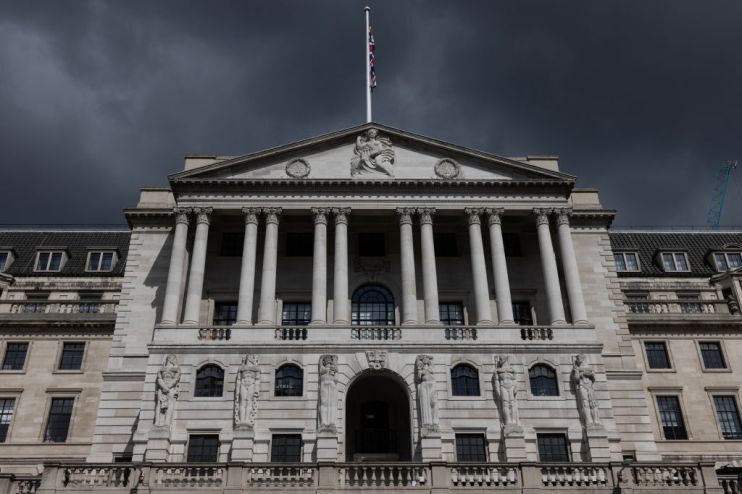Bank of England MPC members: ‘Weak recession’ won’t change timing of interest rate cuts

A “weak recession” will not prompt the Bank of England to start cutting interest rates in the next couple of months, members of its Monetary Policy Committee (MPC) suggested today.
Andrew Bailey, governor of the Bank, came under fire from MPs on the Treasury Committee for having failed to cut interest rates even as inflation approaches target and the UK struggles with very weak growth.
Figures out last week confirmed that the UK fell into a recession at the end of last year. Bailey, however, said the recession, which amounted to a 0.5 per cent reduction in output, was “very weak”.
“If you look at recessions going back to the 1970s this is the weakest by a long way because the range for those two quarter numbers for all the previous recessions was something like 2.5 per cent to 22 per cent,” Bailey said.
Deputy governor Ben Broadbent argued that the technical definition of recession – two consecutive quarters of negative GDP growth – was “unhelpful”.
“There is not some sudden enormous difference that happens when you go from plus point one to minus point one, especially in an environment of relatively weak trend,” he said.
The UK’s trend rate of growth has fallen from around three per cent pre-financial crisis to around one per cent at the moment.
Policymakers at the Bank of England are increasingly facing the accusation that it will be too slow in cutting interest rates having been behind the curve when inflation took off in 2021.
Inflation has fallen to four per cent from a peak of over 11 per cent, dropping much faster than markets expected. The Bank’s forecasts suggest it will touch two per cent in the spring before rising again slightly later in the year.
Yesterday, Andy Haldane, former chief economist at the Bank of England, said: “It’s one thing to have missed inflation on the way up, which happened; it’s quite another to then have crushed the economy on the way down”.
But Bailey and Broadbent pointed to the lingering risks of persistent inflation. Both wage growth and services inflation remain above six per cent, more than double rates consistent with the two per cent inflation target.
Bailey also drew attention to the UK’s very low unemployment rate. “We are actually operating at what we think is full employment,” he said.
“So we have a tight labour market, and it remains tight…We are having to manage this disinflation process in that context,” he continued.
However, Swati Dhingra, the only member of the MPC to have backed a rate cut in the last meeting, warned that the downside risks facing the UK were “substantial”.
“Despite the disinflation at play, and despite the fact that there has been some real wage recovery, we’re still seeing very weak consumption,” she said.
While the Bank has not given any guidance on when rates might start being lowered, the MPC opened the door to rate cuts later in the year. Markets think the first cut will come in the summer.